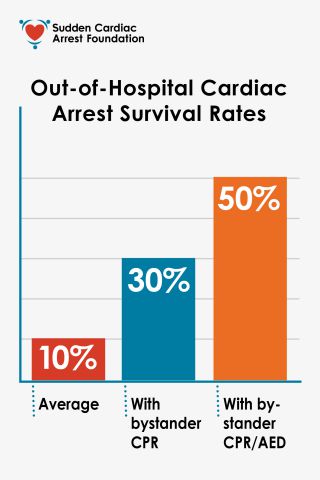
The following is a summary of current AED (Automated External Defibrillator) legislation in the United States.
Bills seeing movement so far this year
Virginia SB 394: This bill, which would require health clubs to have an AED, passed the full senate 34-0 on January 24th. It now goes to the house for consideration.
Massachusetts S.1403: This bill would require any motor vehicle owned or operated by a city or town police or fire department in the Commonwealth and used for official business to be equipped with at least one AED. The bill was reported out of Public Safety and Homeland Security Committee and action could ensue.
Other bills
California AB 116: This bill would require every wave basin that charges a direct fee to have an AED on its premises.
Hawaii HB 1151: This bill would require each vessel used by commercial operators to transport customers for the purpose of engaging in an activity in state waters to have a backboard, emergency oxygen, and an AED included in its onboard safety equipment.
Hawaii SB 255: This bill would require all public schools, public charter schools, and the University of Hawaii and its divisions, campuses, and institutions have AEDs on campus by the end of the 2020-2021 school year.
Missouri HB 1504: This bill would require the placement of AEDs and staff trained in the operation of such devices on passenger trains, cabooses, locomotive units capable of independent operation, and motorized on-track work equipment used in railroad operations.
Mississippi HB 267: This bill would require each school in every public school district to have, in each educational building, central administrative office and cafeteria, an epinephrine auto-injector and an AED, which is stored in a secure and easily accessible location within each respective building to be used by a licensed medical professional or trained designee for use in the event of an emergency anaphylactic reaction or cardiac arrest.
Mississippi HB 268: This bill would require all public post-secondary educational institutions (4-year and 2-year colleges/universities) to have in each educational building, administrative office, dormitory and cafeteria, an epinephrine auto-injector and an AED, which is stored in a secure and easily accessible location within each respective building to be used by a licensed campus medical professional or trained designee for use in the event of an emergency anaphylactic reaction or cardiac arrest.
New Hampshire SB 319: This bill would require at least one AED in each health club, fitness center, fitness studio, indoor or outdoor sports centers, hotel or motel fitness center, deployed in such a manner that provides obvious and ready accessibility to customers, clients, staff, members, and guests.
New Jersey A.1009: This bill would require every hotel to have an AED. It passed the Assembly last year before not receiving a vote in the Senate.
New Jersey A.1719: This bill would require institutions of higher education to have an AED on the premises of each athletic facility and student center.
New Jersey S.621: This bill would require AEDs in New Jersey Transit trains.
New York A.2338: This bill would require health clubs with 50 members or more to have at least one AED on the premises and ensure that the AED is available in a manner that provides obvious and ready accessibility to staff, members and guests.
West Virginia HB 4497: This bill would require an AED at any middle school or high school athletic event.
SOURCE: State legislative websites
